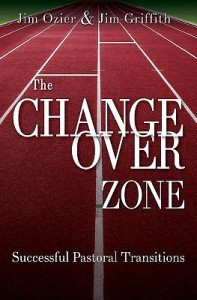In a relay race, the two runners exchanging the baton run in tandem in their changeover zone lane of 20 meters. For most runners, this distance is covered in about seven steps while the receiving runner grabs hold of the baton and sprints out on the next leg of the relay. If you are an arriving pastor entering into the changeover zone, these six specific behaviors will increase the odds of a smooth and successful transition.
Acquaint
Get to know the church, the community, and the people by every means possible. Conduct a listening tour in which the church, through a series of small group gatherings, has a chance to answer specific questions designed to help you get a deeper grasp of the church’s culture. This listening tour is not a “meet and greet,” nor is it a time to hear the pastor’s vision of the future. It is a time for the new pastor to listen and learn. Sprinkle bits of what you’ve heard throughout your first months of sermons. This lets the congregation really know you were listening! In addition, study church and community websites, and immerse yourself in the community by visiting important people, places, and events. And while you are there, take “selfies” to share!
If you are an arriving pastor, these six specific behaviors will increase the odds of a smooth and successful transition.
Accentuate
Accentuate the positive. Never criticize or second guess your predecessor, or speak poorly of the church or previous pastors. Stay positive and appreciative. Show gratitude in every public setting, especially on Sunday morning. Express thanks effusively to someone or some group every Sunday in worship and at meetings or events during the week.
Analyze
Study the church, its context, community needs, and the impact of the church to date. Analyzing is not the same as judging. Be objective, clear, non-judgmental, and humble in analyzing your context. Find strategic ways to involve others in this analysis. The smartest and safest way is to quickly lead the church into some kind of well-structured process of learning together.
Anticipate
Be ready for the anxieties, concerns, fears, and worries of the church and individuals within the church as they receive you as their new pastor. Put yourself in their shoes. There will be grief, and, in some cases, jubilation. Keep your radar up. It is often helpful to mention in worship the stages of grief that people, and congregations, go through at times of change or loss. Realize that some people going through the stages of grief will “act out,” just as a child might do at the loss of a parent or sibling. Guard against internalizing such behaviors or taking it personally, as doing so will interfere with your ability to guide congregants through the stages.
Ask
The questions you ask are critical to understanding the culture of the church. At this point, asking the right questions is more important than giving the right answers. Ask, ask, ask. Show by the very nature of your curiosity and interest that you care about where the church has been, what it is about, and what the community needs. Inquiry can be a new pastor’s best friend.
Set aside daily self-reflection time to ask yourself honestly: “How am I coming across?” “Am I being genuine and authentic?” “Am I being sensitive, gracious, and courteous?” “Are my behaviors what I hope to see in others?” One of the most often voiced complaints heard in times of transition is, “Our new pastor just doesn’t seem very self-aware.”
Answer
Respond to the many questions that will come your way in a humble, but transparent way. Avoid answering from a position of authority. You have to earn authority, and that takes time. Instead, respond from a self-revelatory position that indicates: “It’s not my personal agenda, but the church’s agenda and the mission field’s agendas, and I want to do everything possible to learn more about both.”
This article is adapted from Jim O zier’s book that he co-authored with Jim Griffith, The Changeover Zone: Successful Pastoral Transitions (Abingdon, 2016) and is used with permission. The Changeover Zone is available at Cokesbury and Amazon.
zier’s book that he co-authored with Jim Griffith, The Changeover Zone: Successful Pastoral Transitions (Abingdon, 2016) and is used with permission. The Changeover Zone is available at Cokesbury and Amazon.
Related Resources:
- Passing the Baton to Your Pastoral Successor by Jim Ozier
- How to Make a Good Entrance by Hannah Adair Bonner
- Eleven Questions for Getting to Know a New Congregation by Robert A. Harris
- First Year Priorities When Pastors Move by Ralph C. Watkins
- The Right Start Resource






